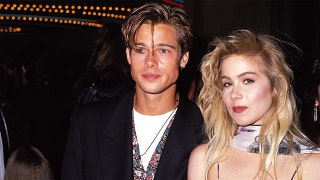Jim Belushi explains how medical marijuana could have helped save his brother John Belushi's life
Jim Belushi spoke to Fox News Digital about his brother, who passed away in 1982 at age 33
When John Belushi first walked on the set of "National Lampoon’s Animal House," Tim Matheson was expecting a "colossal coked-up prima donna."
"Many people thought, ‘He’s going to be like he was on ‘Saturday Night Live’ – that big, bold, outrageous character," Matheson told Fox News Digital.
"People also thought he was going to be full of himself because, at that time, ‘Saturday Night Live’ was the most innovative show on television, and it was a huge hit," he shared. "And he was their biggest star… But he and his wife Judy couldn’t have been more gracious, more down to Earth."
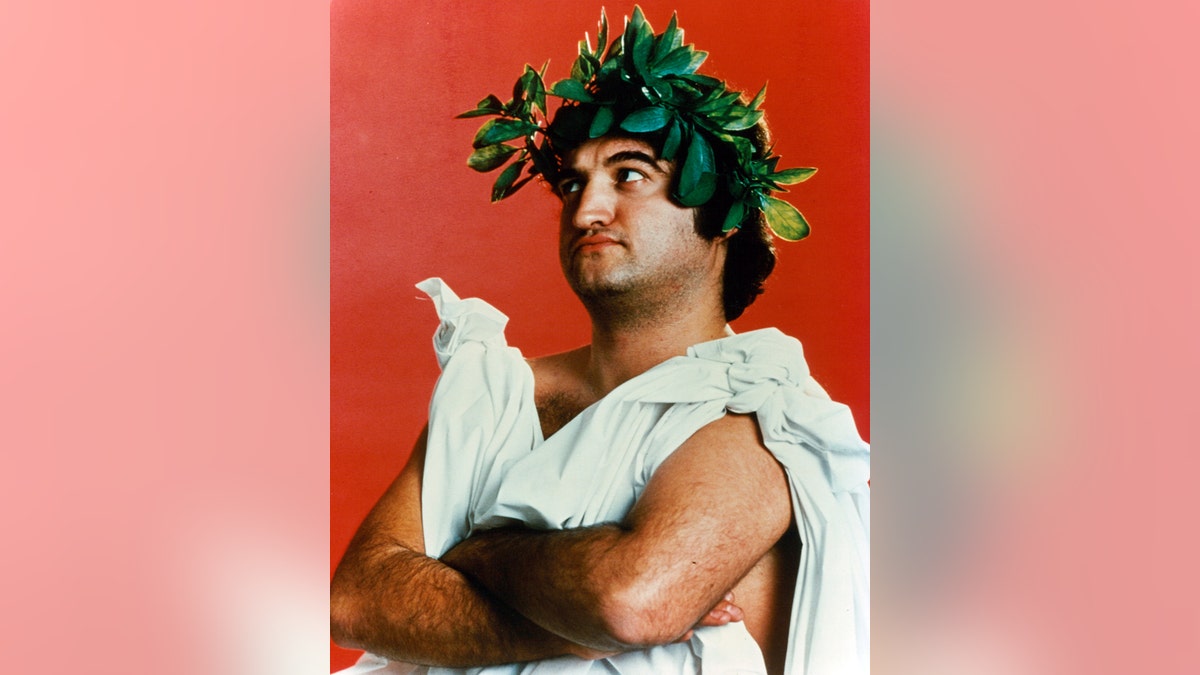
Tim Matheson befriended John Belushi on the set of "Animal House." (Getty Images)
"He wasn’t trying to be funny or upstage anyone," the actor recalled. "He genuinely listened. He was respectful of everyone… And he was that way through the whole shoot. He became very supportive of me."
Matheson, who starred as Eric "Otter" Stratton' in the 1978 comedy, has written a new memoir, "Damn Glad to Meet You: My Seven Decades in the Hollywood Trenches." In it, the 76-year-old details his friendship with Belushi, who died in 1982 at age 33 from a drug overdose.
"'Animal House' was my first comedy," Matheson shared. "I was horrified. I was scared to death, and he was very gracious. He never looked down on anyone. He embraced his team. He was always very kind and supportive of me. He let me know if he liked the way I was doing something. I needed that."
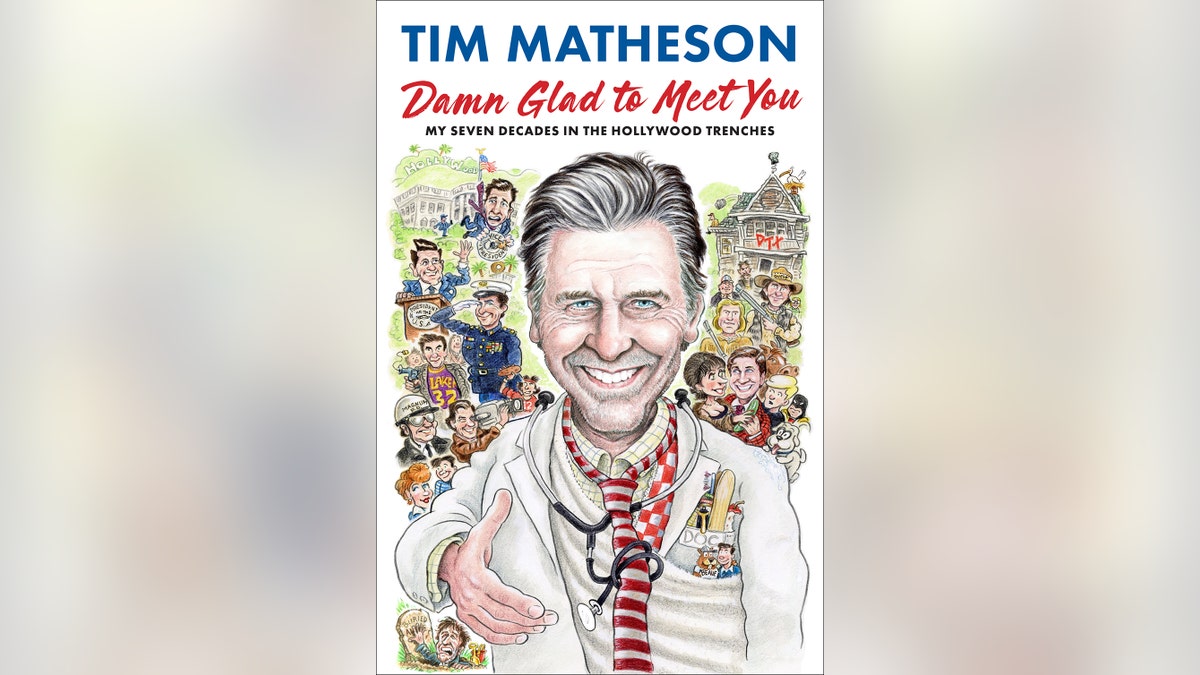
Tim Matheson's memoir "Damn Glad to Meet You" is available now. (Hachette Books)
In his book, Matheson was adamant that Belushi wasn't using drugs while filming.
"Belushi, for the record, was clean on set during ‘Animal House,’" he wrote. "If he did anything, it was away from the rest of us, and he never gave any signs he was up to anything."
"[Director John] Landis had warned Belushi to keep on his best behavior and made sure it was a drug-free set," Matheson added.
CLICK HERE TO SIGN UP FOR THE ENTERTAINMENT NEWSLETTER

John Belushi "didn't have a prayer," said Tim Matheson. (Ron Galella/Ron Galella Collection via Getty Images)
Still, Matheson told Fox News Digital that when cameras stopped rolling, Belushi "was walking on the edge all the time."
"'Animal House’ was a huge hit," said Matheson. "I had to go to Chicago for a weekend to promote the film… John showed me Chicago. I’d never seen Chicago. He was the favorite son of Chicago. He was the biggest star out of Chicago at the time."
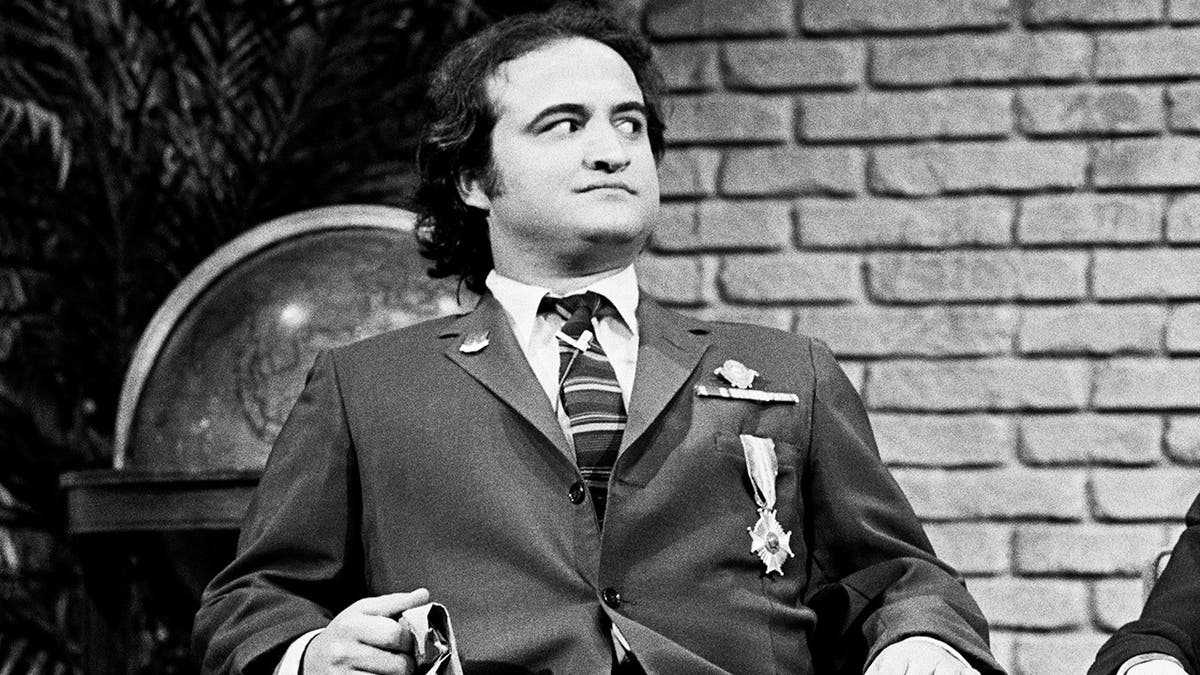
John Belushi as Piotre Seluga on the set of "Saturday Night Live," circa 1976. (NBCU Photo Bank/NBCUniversal via Getty Images via Getty Images)
"But I do remember, the next morning, after our first Friday night there, John didn’t answer the door," he recalled. "When they called for him to come down to the car, he would never answer the door. They had to pry the door open, take the door off of its hinges. John was passed out in his bed just from partying until 4:30 in the morning.
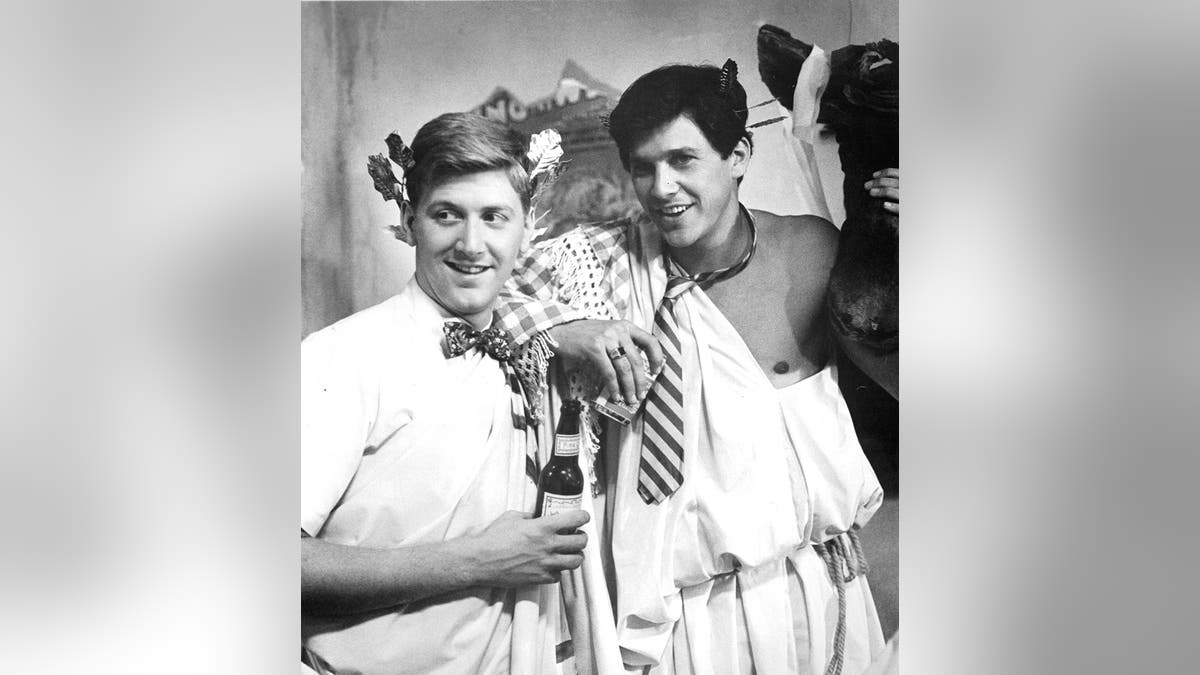
Actors James Widdoes and Tim Matheson on the set of the Universal Studios movie "Animal House" in 1978. (Michael Ochs Archives/Getty Images)
"And then when I visited him in New York, there was this big party after ‘Saturday Night Live.’ It was television meets rock ‘n’ roll. As TV actors, we weren’t that involved with drugs because it didn’t help with your work, and you worked a lot harder."
"… But on SNL, it wasn’t as rigorous," he continued. "I think they always flirted with drugs. It helps with the high of the [show] and the party continues afterward… That’s what I noticed about it.
"At the time, he had the biggest-selling record in America. He was in the number-one movie in America and the number-one television show in America. Everybody thought John partied all the time. So, everybody wanted to party with John. He couldn’t escape it."
LIKE WHAT YOU’RE READING? CLICK HERE FOR MORE ENTERTAINMENT NEWS
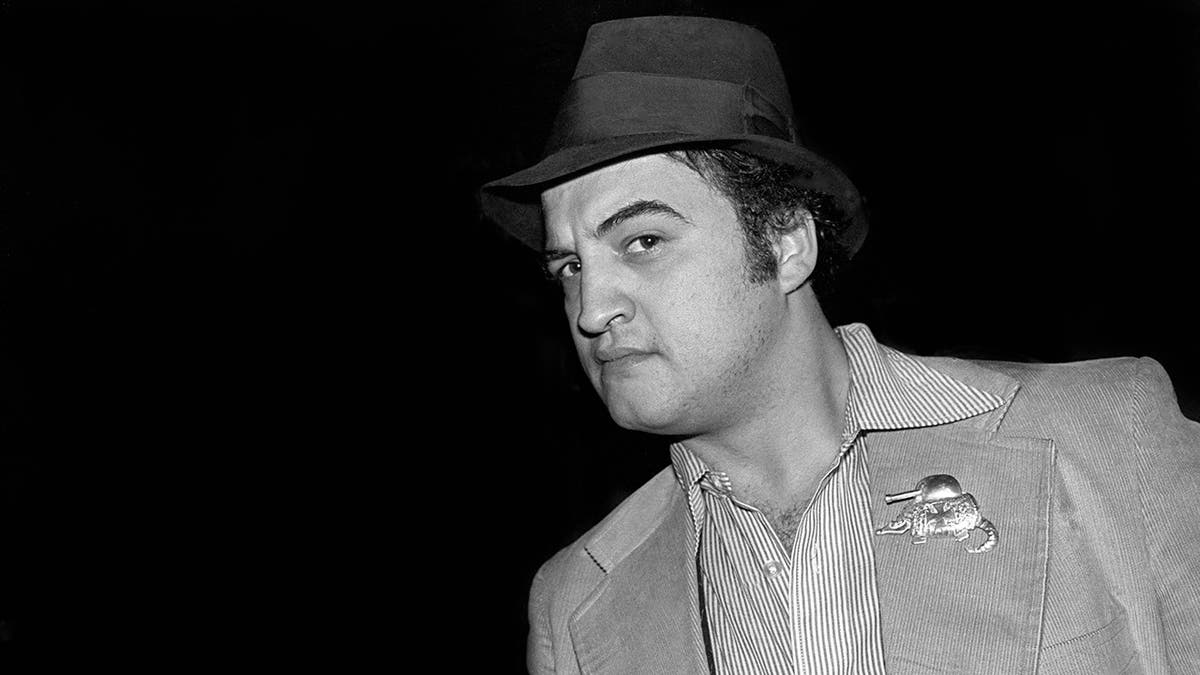
John Belushi was 33 when he passed away from a drug overdose. (Richard E. Aaron/Redferns/Getty Images)
In his book, Matheson wrote that Belushi "didn’t have a prayer." He noted that the comic had "two enormous bodyguards whose primary job was to keep people from giving him drugs."
Matheson told Fox News Digital he still remembers the last time he saw his pal.
"It was between 1980-1981," he said. "I just remember seeing him and Dan Aykroyd enjoying themselves. That was a more somber moment – a sober moment too. At that point, John was excited about directing his career and trying to choose different characters and roles to play, not just the same old thing."
"Everybody thought John partied all the time. So, everybody wanted to party with John. He couldn’t escape it."

Dan Aykroyd and John Belushi performing on stage as the Blues Brothers. (Jay Dickman/Corbis/Corbis via Getty Images)
On March 5, 1982, Belushi shot a "speedball," a mixture of coke and heroin. He was found dead at the Château Marmont in Los Angeles. Matheson wrote he was "filled with sadness but not surprised."
WATCH: JIM BELUSHI EXPLAINS HOW MEDICAL MARIJUANA COULD HAVE HELPED SAVE HIS BROTHER JOHN BELUSHI'S LIFE
"There were so many people that I knew whose lives were ravished by drugs," Matheson told Fox News Digital. "… I knew some actors who didn’t achieve the heights of their career that they hoped or thought they would have, and it affected them. And drugs, I guess, were sort of a release from that kind of disappointment.
"And how stupid we were because, when ‘Animal House’ came out, we thought, ‘Cocaine isn’t really bad for you. It doesn’t affect your heart at all.’ But oh my God, it wised me and us up to our mortality."
CLICK HERE TO GET THE FOX NEWS APP

Tim Matheson poses for a portrait in Los Angeles, April 1979. (Donaldson Collection/Getty Images)
"All of a sudden, our friends are passing," he reflected. "It was like, ‘Wait a minute – this is a little too young – 33 is awfully young."
Matheson experienced déjà vu in 1996. At the time, he was filming "Black Sheep" with Chris Farley, who looked up to Belushi. He wrote that it was like watching his friend all over again.
"I was fortunate when we did ‘Black Sheep’ that Chris was sober," said Matheson.
"But he was very compulsive. He drank 30 iced coffees a day, and he smoked one cigarette after another.

Tim Matheson met Chris Farley on the set of "Black Sheep." (Paramount Pictures/Getty Images)
"He was always doing something to stimulate himself. I could see where his addictions came from, and I thought, ‘This would not be a good thing if you’re playing around with drugs and alcohol.’"
Matheson said that when he last saw Farley at the premiere of "Beverly Hills Ninja" a year later, the comic "was a little worse for wear."
"I just hugged him," said Matheson. "I told him I loved him, and I just wanted him to stay healthy and be with us. It was a shame."

Chris Farley attends the premiere of "Beverly Hills Ninja" on Jan. 11, 1997, at the Avco Theater in Westwood, California. (Ron Galella, Ltd./Ron Galella Collection via Getty Images)
Like his idol, Farley died in 1997 at age 33 from a drug overdose.

Tim Matheson has led a successful decades-long career in Hollywood. He's now sharing his stories. (JB Lacroix/ WireImage/Getty Images)
Matheson said he's grateful to have survived Hollywood and its temptations. Many of his friends didn't.
"I’m so lucky," said Matheson. "My good fortune was that I started acting at such an early age. I got to work with people that today’s generation is not even aware of. I learned of their training, and the rigors that those people went through in performing. That stayed with me."













